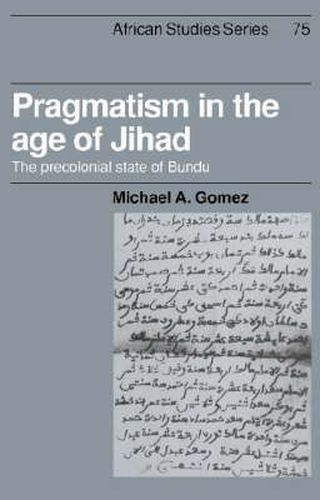Readings Newsletter
Become a Readings Member to make your shopping experience even easier.
Sign in or sign up for free!
You’re not far away from qualifying for FREE standard shipping within Australia
You’ve qualified for FREE standard shipping within Australia
The cart is loading…






Bundu is an anomaly among the precolonial Muslim states of West Africa. Founded during the jihads which swept the savannah in the eighteenth and nineteenth centuries, it developed a pragmatic policy, unique in the midst of fundamentalist, theocratic Muslim states. Located in the Upper Senegal and with access to the Upper Gambia, Bundu played a critical role in regional commerce and production and reacted quickly to the stimulus of European trade. Drawing on a wide range of sources both oral and documentary, Arabic, English and French, Dr. Gomez provides the first full account of Bundu’s history. He analyzes the foundation and growth of an Islamic state at a crossroads between the Saharan and trans-Atlantic trade, paying particular attention to the relationship between Islamic thought and court policy, and to the state’s response to militant Islam in the early nineteenth century.
$9.00 standard shipping within Australia
FREE standard shipping within Australia for orders over $100.00
Express & International shipping calculated at checkout
Bundu is an anomaly among the precolonial Muslim states of West Africa. Founded during the jihads which swept the savannah in the eighteenth and nineteenth centuries, it developed a pragmatic policy, unique in the midst of fundamentalist, theocratic Muslim states. Located in the Upper Senegal and with access to the Upper Gambia, Bundu played a critical role in regional commerce and production and reacted quickly to the stimulus of European trade. Drawing on a wide range of sources both oral and documentary, Arabic, English and French, Dr. Gomez provides the first full account of Bundu’s history. He analyzes the foundation and growth of an Islamic state at a crossroads between the Saharan and trans-Atlantic trade, paying particular attention to the relationship between Islamic thought and court policy, and to the state’s response to militant Islam in the early nineteenth century.